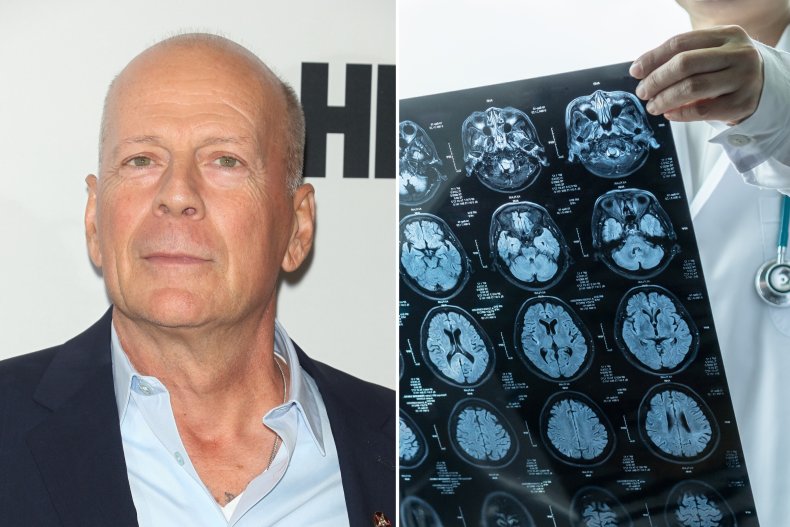What Is Frontotemporal Dementia? Bruce Willis Endures 'Cruel Disease'
The family of Bruce Willis announced that the retired actor has been diagnosed with frontotemporal dementia (FTD).
Willis, 67, retired from acting in April after his family announced that he was suffering from language and cognition disorder aphasia. On Thursday, family members including his wife Emma Heming Willis, five children and ex-wife Demi Moore issued a statement thanking fans for an "outpouring of love and compassion," while revealing that the star's condition had "progressed" and resulted in a diagnosis of FTD.
"Unfortunately, challenges with communication are just one symptom of the disease Bruce faces," the family said. "While this is painful, it is a relief to finally have a clear diagnosis. FTD is a cruel disease that many of us have never heard of and can strike anyone. For people under 60, FTD is the most common form of dementia."
"Bruce always believed in using his voice in the world to help others," they continued. "We know in our hearts that—if he could today—he would want to respond by bringing global attention and a connectedness with those who are also dealing with this debilitating disease and how it impacts so many individuals and their families."

According to the Association for Frontotemporal Degeneration (AFTD), FTD consists of incurable disorders that cause degeneration in the frontal and temporal lobes of the brain, leading to "an inevitable decline in functioning" for the patient. There are currently no treatments to stop progression of the disease.
While FTD shares some symptoms with Alzheimer's disease, the most common type of dementia, there are some key differences. FTD tends to affect people at a younger age, with the onset of most cases occurring from ages 45 to 64.
"As the disease progresses, the person affected may experience increasing difficulty in planning or organizing activities," the AFTD website states. "They may behave inappropriately in social or work settings, and have trouble communicating with others, or relating to loved ones."
"Over time, FTD predisposes an individual to physical complications such as pneumonia, infection, or injury from a fall, it continues. "Average life expectancy is 7 to 13 years after the start of symptoms ... The most common cause of death is pneumonia."
Some subtypes of FTD include aphasia, according to the Mayo Clinic. This can include worsening difficulties in understanding and expressing language. Behavior changes can include problems with judgment, interpersonal skills, a lack of inhibition and more unusual signs like "eating inedible objects."
Rarer subtypes of FTD include symptoms similar to those seen in disorders involving motor skills and movement, such as Parkinson's disease and amyotrophic lateral sclerosis, or ALS.
AFTD, which hosted the Willis family statement on its website, said in a statement obtained by Newsweek that "our hearts go out to the Willis family as they go public with this important news."
The organization also announced that Emma Heming Willis had "agreed to take on a brand ambassador role for AFTD" and would be working to "raise FTD awareness in the weeks ahead."

